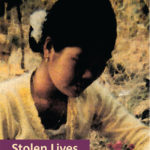Poisoned Hills (Opium cul va on surges under government control in Burma)
Community assessments by the Palaung Women’s Organisation during the past two years reveal that the amount of opium being cultivated in Burma’s northern Shan State has been increasing dramatically. The amounts are far higher than reported in the annual opium surveys of the United Nations Office on Drugs and Crime (UNODC), and are flourish- ing not in “insurgent and ceasefire areas,” as claimed by the UN, but in areas controlled by Burma’s military government, the State Peace and Development Council (SPDC).
Between 2007-2009, PWO conducted field surveys in Namkham and Mantong townships, and found that the total area of opium cultivated increased almost fivefold over three years from 963 hectares in the 2006-7 season to 4,545 hectares in the 2008-9 season.
Namkham and Mantong are both fully under the control of the SPDC. The areas have an extensive security infrastructure including Burma Army battalions, police, and pro-government village militia. These militia are allowed to engage in illicit income-generating activities in exchange for policing against resistance activity, and are being expanded in the lead up to the regime’s planned 2010 elections.
Local authorities, in “anti-drug teams” formed by the police in each township, have been systematically extorting fees from villagers in exchange for allowing them to grow opium. During the 2007-8 season in Mantong township, at least 37 million kyat (US$37,000) in bribes in total were collected from 28 villages.



